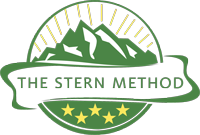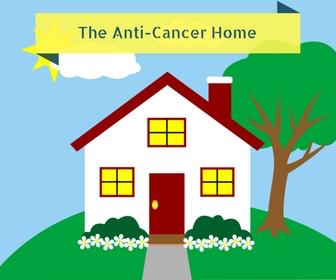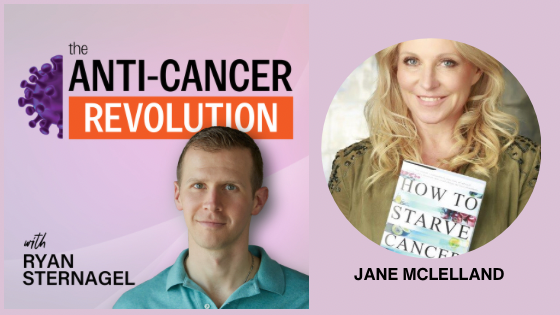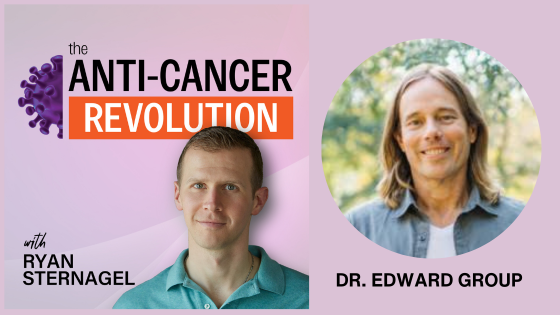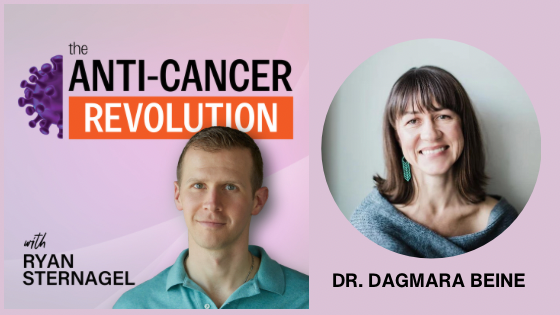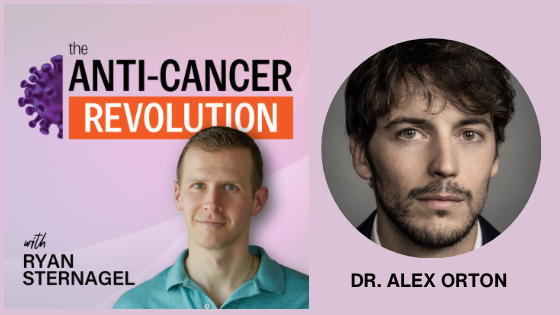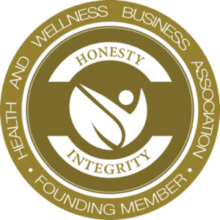[sc name=”SquareOne”]
The Stern Method Podcast Episode 007
Jenny Hrbacek, RN is an expert in early cancer detection and long term monitoring. Jenny tells us about some of her favorite tests that allow cancer detection far in advance of when it would be conventional methods would be able to find it, when reversing it is usually as simple as diet and lifestyle change without having to go to any extreme measures.
These same tests also give us a baseline to work from when we know we have cancer to monitor our progress much more precisely than MRIs, and can tell us if we still have more work to do even if conventional medicine has pronounced us “cured.” Jenny also talks about some of these tests’ ability to give us specific information regarding the weaknesses of the actual cancer cells we’re healing.
All of these tests are detailed in Jenny’s book, Cancer Free! Are You Sure? as well as in her new online cancer course series Cancer Free University along with detailed information on natural treatments and prevention strategies.
[sc name=”Simple Mailing list opt in”]
In This Episode:
- Jenny Hrbacek talks about her own experience with cancer and the conventional route of chemotherapy and radical surgeries, getting told she was cancer free, having a bad feeling, finding out about more precise tests and soon after that finding out the cancer was in fact alive and well in her body.
- Some of the best tests that are detailed in her book “Cancer Free! Are You Sure” for detecting cancer far before conventional oncology can find it and also tracking it far after they think it’s gone.
- What you can do with the information some of these tests provide to customize your protocol to what’s actually going to work the best for you or your child.
- Which of these tests might be covered by your insurance, but even if they’re not why having this information is more crucial today than it ever has been.
- Jenny’s new online cancer course series Cancer Free University where she gives you an expert interview on just about any subject you could ask for in integrative cancer treatment at your fingertips…. Including an interview with yours truly on making all of this work for childhood cancer!
How Jenny Hrbacek’s Episode on Advanced Cancer Testing Applies to Childhood Cancer
We wish we didn’t hear about relapses in childhood cancer as much as we do. It seems like every day we hear about a child bravely making their way through the standard of care and his or her parents are told they have attained NED (No Evidence of Disease) status and that they are free to go about life as usual, only to have it come back “with a vengeance” months or years down the road.
If that child’s parent had known when the treatment ended that there was still work to be done, that work would have gotten done as nothing stands in the way of a cancer parent making sure their child gets what they need. It’s the false sense of security that comes with “NED” which leads to very bad situations.
Granted, if you’re the type of parent reading this website, you’re probably not going to be sitting on your hands even after conventional treatment has ended. For us, we have the opposite problem. In trying to be the best parents we can be, we’ve had our foot down hard on the gas for three years now without a clue when to stop.
The tests mentioned in this interview and in Jenny Hrbacek’s book Cancer Free! Are You Sure? can solve both of these problems for parents.
As with everything else involved with applying an integrative approach to childhood cancer, it just takes a little more thought, research and effort to make it work for your kid.
One of the most frustrating parts about researching integrative approaches to cancer for your child is that every article you read is written using examples and referencing studies all pertaining to adult cancers. It can get you feeling like your situation is somehow fundamentally different and that everything you read probably doesn’t even apply to your child.
The literature on these tests are no different. Those that list out specific cancer types tested for tend to mention all adult cancers.
What you have to realize though, is that they’re not testing for any cancer type specifically. They’re just testing for certain markers – elevated enzymes, proteins, antibodies, and so on.

So really, it’s not about whether the test does or does not detect the type of cancer you’re researching. It’s just about finding out if that type of cancer puts out those markers.
The easiest way to find out… is to ask.
Jenny’s book includes what marker each test is testing for, along with contact information for each lab. What I plan on doing for neuroblastoma, is to write a quick message to each lab similar to the following:
Hi!
I’m trying to find the best cancer test for my son. I was wondering if you have any data available on neuroblastoma pertaining to the markers your test is designed to detect.
Your help would be greatly appreciated, thank you!
And that’s it. You could customize it a bit for the specific test in terms of naming the specific markers, or you could just fire off those exact few sentences to everyone. People will get what you’re trying to do, and hey, you’re going through childhood cancer. People will give you a pass on not being as detailed as you could be.
If any particular lab doesn’t have a good answer for you, the other thing you can do is find this information in the studies yourself. Free directories of scientific journals available to the public are Pubmed, Wiley Online, ScienceDirect, DOAJ, and Google Scholar.
The CA profile for instance tests for HCG, PHI, CEA, GGTP, TSH, and DHEA-S. The Oncoblot looks for the Enox2 protein. So I would go through the directories just searching neuroblastoma in combination with these various enzymes, hormones, antibodies and so on and see what I come up with.
The side benefit of going through and searching all of these common cancer markers with the specific cancer type you’re researching is by the end of it you will have a greatly enhanced understanding of that cancer and it will start formulating ideas you would have never had otherwise in your research.
As I will be going through this writing and researching exercise soon for neuroblastoma, we’ll be sure to make the results available here when they’re compiled so be sure to check back if they would be helpful to you… but the beauty of getting information this way is you don’t have to wait for anybody! Not your doctor, and not anyone writing articles like this one. If you need it and it’s not readily available, you just need to get after it!
Takeaways from the Jenny Hrbacek Interview
The information Jenny has compiled in her book Cancer Free! Are You Sure? on advanced testing strategies for cancer, really, is invaluable.
When healing from cancer the more information you can gather and compile in such a way that improves your understanding of exactly what it is you’re dealing with, the better off you will be. There’s just no two ways about it.
Take that notion and apply it to tests like these. Tests that can tell you exactly what is going on in your own body pertaining to cancer – from whether or not there is cancer in your body at all, to where it is, to how much of it, to what is most likely to reverse it, all far in advance of and with much greater specificity than anything conventional medicine has to offer.
Put that way there’s really not much to think about from either a therapeutic or preventative standpoint as to whether or not these tests should be a part of everyone’s health practices.
How Jenny Hrbacek Came to Write Cancer Free! Are You Sure?
Like most people putting out information on integrative approaches to healing cancer, Jenny Hrbacek began finding out about these tests due to a personal need.
In 2009 Jenny had developed what she thought was a cyst on her breast, which turned out to be a tumor.
When she asked how long she’d had the cancer, Jenny expected the doctors to say some number of months, as she went for annual checkups and had been fine at her last one. When she was told likely seven to ten years, this really struck her and planted the first seed in her mind that maybe the available information on cancer might not be the best.
Being a registered nurse and dealing with conventional doctors all day long, at the time Jenny had no knowledge of any integrative approaches and went the full blown conventional route. She received a double mastectomy and afterwards it was discovered some of the cancer had spread to her lymph nodes as well. After removal of the lymph nodes and four rounds of chemotherapy she was pronounced “in remission.”
It was at a breast cancer support group that Jenny got the feeling she needed to be doing more. As she started talking to the women there, it became apparent that the vast majority of them were dealing with their second or third occurrence. All after initially being told they were cured or in remission.
Not wanting that to be her, Jenny began researching and ended up seeing an integrative physician who recommended they do a test by a lab out of Greece which analyzes the blood, looking for circulating tumor cells. The level of cancer cells is rated on a numerical scale. Zero is what indicates “no cancer.”
After the removal of both breasts and several lymph nodes along with undergoing four rounds of chemotherapy, Jenny was expecting that she would see a zero and then go about keeping it that way.
The number she got back was 14.2.
This is what pushed Jenny headlong into the world of natural approaches to cancer, as it was very clear her work had only just begun. Since that time, Jenny has been working that number back down to zero through various non-toxic means and is in a very good place.
With all the information she was gathering on these various tests that aren’t offered in the hospital and realizing the need that existed for this information, Jenny wrote her book Cancer Free! Are You Sure? along the way and has now helped thousands of people arm themselves with information and take control of their health.
[sc name=”GMOs Revealed”]
Advanced Cancer Screening Could Prevent the Need For “Treatment” Altogether
Jenny makes a strong case that in true early detection that is available right now, what it means to “have cancer” could look absolutely nothing like it does currently. More people just need to know about it.
Jenny makes the point that right now, you need to have a “pretty good case of cancer” in order to even qualify to get tested for it. Usually the first test they run conventionally will be a very limited blood test which often comes back “normal” even if there is a significant amount of cancer at that point and the individual is told there’s nothing to worry about. This just pushes addressing the cancer out even further while it continues to grow and spread.
I know just about everyone we talk to, ourselves included, had to really fight to get themselves or their child diagnosed. It doesn’t need to be this way.
If you had to be diagnosed with cancer (and every other person will at some point in their lives now, so this question isn’t all that hypothetical…), would you rather find out at stage one or stage four? For that matter, given the level of sensitivity of many of the tests available today one can find out about a buildup of cancer cells far in advance of what would even be considered stage one.
At that level, conventionally you don’t even qualify for surgery or chemotherapy or radiation. Your only option at that time are diet and lifestyle change, which fortunately in most cases like that are all that is really required to turn the cancer back in the other direction.
Jenny asks us to picture a world where hardly anyone ever got any sort of “lump or bump” whatsoever. Heart disease, diabetes, osteoporosis, and so on are all checked for in “routine tests” at some stage in life, why not cancer? Why can’t we find out about cancer when it’s just a handful of cells floating around rather than billions that have formed multiple tumors and metastasized into organs?
Advanced Screening Methods Can Keep Cancer Away Once and for All
Jenny tells the hypothetical story we’ve all experienced some form of. A group of golfers are out on the course, and one of them asks where their friend Bill is. “You didn’t hear? Bill’s colon cancer came back.” Even though Bill’s surgeon said he had “clean margins” and that he “got it all,” the cancer came back and now Bill is dealing with an even more aggressive case than the first one.
This is because the cancer was never really gone to begin with. A tumor is the representation of cancer that is visible to the naked eye, but it is not the entirety of the disease whatsoever.
Within the population of cancer cells, about two percent are what are known as cancer stem cells. These are the cells that have the capability to metastasize into organs and can remain circulating in the blood long after a tumor has been removed.
Cancer stem cells also tend to be the ones that are resistant to chemotherapy and radiation. So even if your oncologist tells you he blasted away ever last cell… chances are he didn’t. He just has no way of knowing as singular cells in circulation won’t show up on a PET scan.
When people are told there is “no evidence of disease” and that they are “in remission” without taking these cancer stem cells into account, it’s easy to get lulled into a false sense of security. They go back to their normal lives without addressing whatever it was that caused the cancer to arise in the first place.
If people were given a more accurate picture of what was going on inside of them up front, many of them would realize that more was needed to truly be healed than going through conventional treatment and do what it takes to get well. Sadly as it stands today most people will never hear about these tests available, or even the term cancer stem cell for that matter.
Advanced Cancer Screening Can Give More Specific and Actionable Genetic Information
Think of some of these tests as a “liquid biopsy.” Instead of cutting you open, cutting out a little piece of the tumor (which has a likelihood of spreading more cancer stem cells throughout the body), and analyzing that little portion of the tumor to identify pertinent genetic pathways and mutations to determine the most likely therapies to work, blood tests such as Biocept will collect the circulating tumor cells out of the blood and analyze them.
Information collected this way rather than a biopsy is much more valuable due to tumor cell heterogeneity in today’s cancers. In other words, individual cancer cells can have entirely different things going wrong with them. Because the world today is so full of carcinogens and we’re getting hit from every angle, cancer itself can be more complex, and therefore more resistant to therapies than it was in the past. This makes having the most accurate information you can that much more valuable.
Instead of only having the little portion of the tumor that was cut out and the cells within in available to study, cells collected from the blood represent a better-rounded picture of the entire landscape of the picture.
Plus, as cancer continues to mutate and respond either positively or negatively to treatment, the cancer you’re dealing with today is likely entirely different than the cancer you were dealing with when you first got the biopsy. Because a liquid biopsy is able to be repeated much more often without the need to cut you or your child and the tumor often, you’re able to have much more up to date information on the current state of the cancer.
The Research Genetic Cancer Center even goes as far as to take the collected cells, clone them, and then test specific compounds against them to see what will have the greatest efficacy. Conversely this can tell you what will NOT be likely to work against the cancer, which can save a whole lot of money on supplements and a whole lot of damage from chemotherapy.
To find out about all of these tests available, exactly what each one does and does not do, how much they cost, how to get them, and so on, you really need Jenny’s book Cancer Free! Are You Sure?. She lays it all out beautifully. Just make sure to get the most current edition! At the time of this article it’s on its fourth edition in two years as the technology is progressing rapidly and Jenny is constantly updating the book to reflect all of it.
Some Insurance Coverage, some Doctors Coming Around
Jenny notes that some of these advanced tests are indeed beginning to become covered by insurance. The Biocept, Foundation Medicine, and CA Profile are now covered for some cancer types, in some situations… and some doctors are now beginning to give referrals for them. Jenny makes it clear that if you find out you could be covered for one of these tests and your doctor won’t order one for you, firing him and finding a new one should probably be one of your first orders of business.
That being said, even if you’re not able to get one of these tests covered by insurance, again the information is so valuable that you’ll want to budget it in as a part of your protocol either way.
Cancer Free University
Lastly, Jenny and I talked about her new very exciting project, Cancer Free University. Knowing as much as you can about your cancer status is half the battle, the other half is knowing what to do about it.
Jenny has compiled dozens of interviews with top experts on every important topic pertaining to healing or preventing cancer you could ever want to know about. Doing a million searches every time you hear about a new treatment or strategy you’d like to learn more about is one of the most overwhelming parts of researching cancer from an integrative perspective.
Jenny has used the knowledge and contacts she’s gain over the years to bring you the absolute best person to be explaining any given particular issue, and assembled them all in one place. She points out that getting face time with any one of these doctors can cost hundreds of dollars which is where the real value in Cancer Free University lies.
Jenny is also continually updating the program. As the research progresses, so does Cancer Free University, so you’re always sure to have the latest and greatest information.
AND, she was nice enough to offer a $50 discount to all The Stern Method readers which you can take advantage of using the code MKCC50.
So get the book, get enrolled, and get empowered!!
